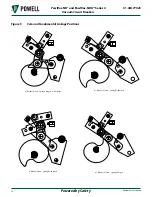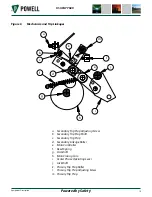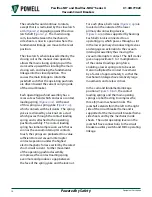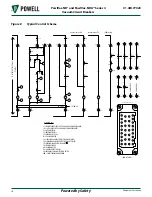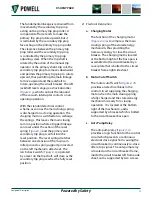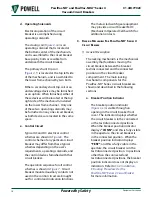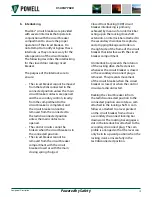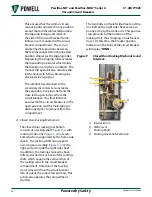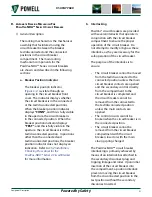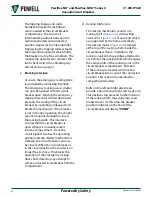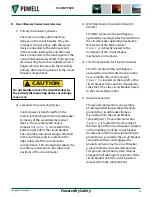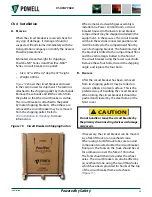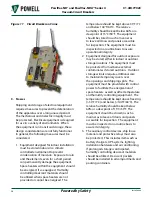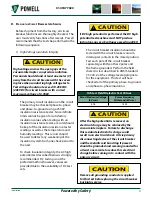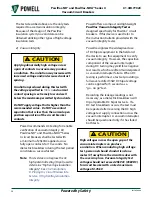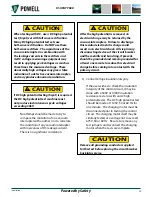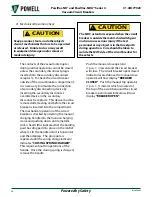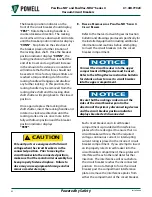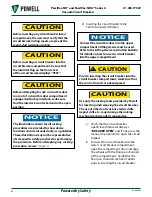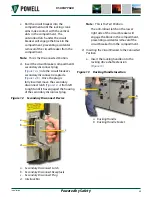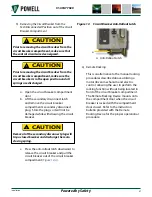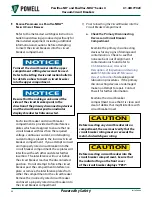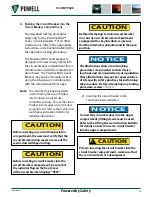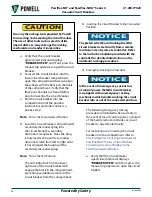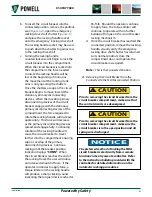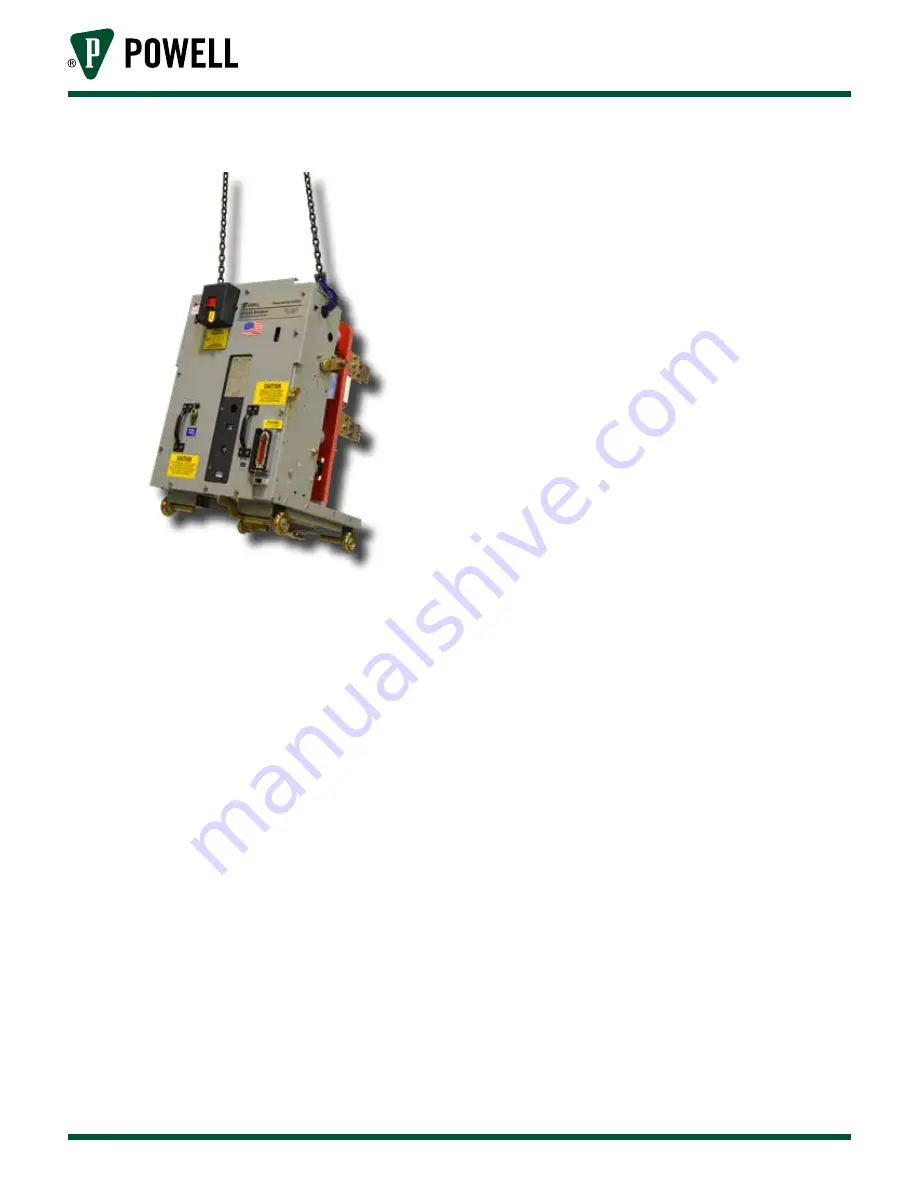
Powered by Safety
®
26
Installation
01.4IB.77020
PowlVac-ND
®
and PowlVac-NDA
™
Series 4
Vacuum Circuit Breakers
Figure 11 Circuit Breaker on Crane
c. S
torAGe
Shipping and storage of electrical equipment
requires measures to prevent the deterioration
of the apparatus over a long unused period.
The mechanical and dielectric integrity must
be protected. Electrical equipment is designed
for use in a variety of environments. When
the equipment is in transit and storage, these
design considerations are not fully functional.
In general, the following measures must be
considered.
1. Equipment designed for indoor installation
must be stored indoors in a climate
controlled environment to prevent
condensation of moisture. Exposure to rain
and the elements, even for a short period,
can permanently damage the equipment.
Space heaters within the equipment should
be energized, if so equipped. Humidity
controlling desiccant materials should
be utilized when space heaters are not
provided or cannot be energized. The
temperature should be kept above 33°F/1°C
and below 140°F/60°C. The relative
humidity should be kept below 60% or a
dew point of 15°C/59°F. The equipment
should be stored in such a manner as
to leave all doors and panels accessible
for inspection. The equipment must be
inspected on a routine basis to assure
operational integrity.
2. Equipment designed for outdoor exposure
may be stored either in indoor or outdoor
storage locations. The equipment must
be protected from airborne external
contaminates if stored outdoors. Outdoor
storage will also require additional care
to maintain temporary covers over
the openings and shipping splits. The
equipment must be provided with control
power to facilitate the energization of
space heaters, as well as other temperature
and humidity controlling equipment. The
temperature should be kept above freezing
(>33°F/1°C) and below (<140°F/60°C). The
relative humidity should be kept below
60% or a dew point of 15°C/59°F. The
equipment should be stored in such a
manner as to leave all doors and panels
accessible for inspection. The equipment
must be inspected on a routine basis to
assure its integrity.
3. The auxiliary control devices, ship loose
material and protective relays must also
be protected. This includes items such as
battery chargers, UPS systems, lighting,
installation hardware and air conditioning.
If prolonged storage is anticipated,
humidity controlling desiccant materials
should be utilized. Desiccant packets
should be installed in all compartments and
packing containers.

